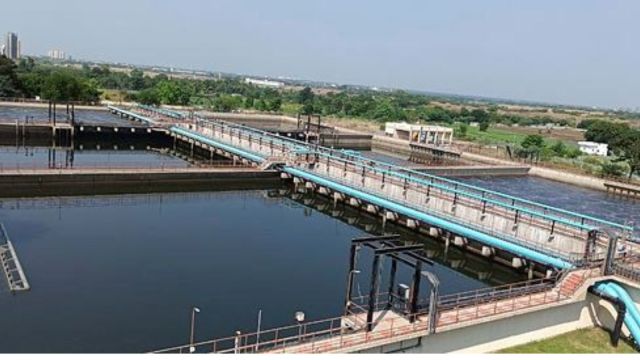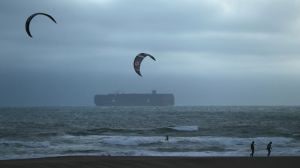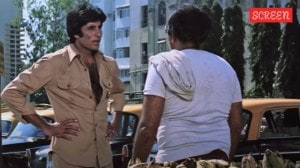BMC to make treated water from Colaba STP fit for potable use
Once the STP is ready, civic officials said that a distribution channel will be set up, through which treated water will be supplied to residential and commercial units for potable usage.
 The BMC presently has four functional STPs at Colaba, Banganga, Chembur and Charkop. (Representational file image)
The BMC presently has four functional STPs at Colaba, Banganga, Chembur and Charkop. (Representational file image)Taking its first step towards making treated sewage water fit for human consumption – the Brihanmumbai Municipal Corporation (BMC) is set to upgrade one of its existing Sewage Treatment Plant (STP) with a capacity of 15 million liters (MLD) into an Advanced Tertiary Plant (ATP) that would disinfect and recycle sewage water, making it fit for potable use.
At present, Mumbai generates 2,190 MLD of sewage daily, of which only 22.65 MLD or 1% is being recycled for non-potable usage. The remaining quantum of untreated water gets flushed out from the city through the sewage outfalls into the sea and creeks. To mitigate this issue, the BMC had initiated a Rs 28,000 crore STP project in 2023 under which it aims to construct seven STPs with a total capacity to treat 2,464 MLD of sewage daily. These STPs are expected to become operational by 2026 onwards in a phased manner.
The BMC presently has four functional STPs at Colaba, Banganga, Chembur and Charkop.
Of these four STPs, the Colaba STP which is in operation since 2020, is the largest, having a maximum capacity to treat up to 37 MLD of sewage daily. However, as of today this STP recycles only 15 MLD of sewage daily.
At present, the treated water from this STP is being used for non-potable usage like gardening, cleaning of roads, firefighting and washing vehicles. Therefore, in order to make this water fit for human consumption the BMC is discussing a proposal to upgrade it.
“At present, this STP functions as a tertiary water treatment facility which recycles the water to an extent of making it fit for non-potable usage. Now, our plan is to upgrade this plant into an Advance Treatment Plant (ATP) so that the recycled water becomes fit for human consumption,” said a civic official privy to this project.
The official maintained that this step is being taken up to bridge the gap of demand and supply of water in Mumbai. At present, Mumbai requires 4,200 MLD of water daily, of which BMC is able to supply 3,850 MLD.
Once the STP is ready, civic officials said that a distribution channel will be set up, through which treated water will be supplied to residential and commercial units for potable usage. The civic authorities maintained that suggestions and objections will also be invited from residents before making this plant operational.
“The water will be disinfected and a process of mineralisation will be carried out so that the overall quality of recycled water matches up with the quality of drinking water being supplied by the BMC daily,” said the official.
The official maintained that tenders for appointing a contractor for this project will be floated next year. This will be a pilot project and after its completion a similar model will be implemented at the remaining operational STPs at Banganga, Chembur and Charkop.
Meanwhile, the seven new treatment plants which are being constructed are going to be ATPs equipped to recycle water for potable usage from the beginning. Civic officials are expecting that these STPs, once operational, will reduce the shortfall of water in Mumbai by a significant margin.











